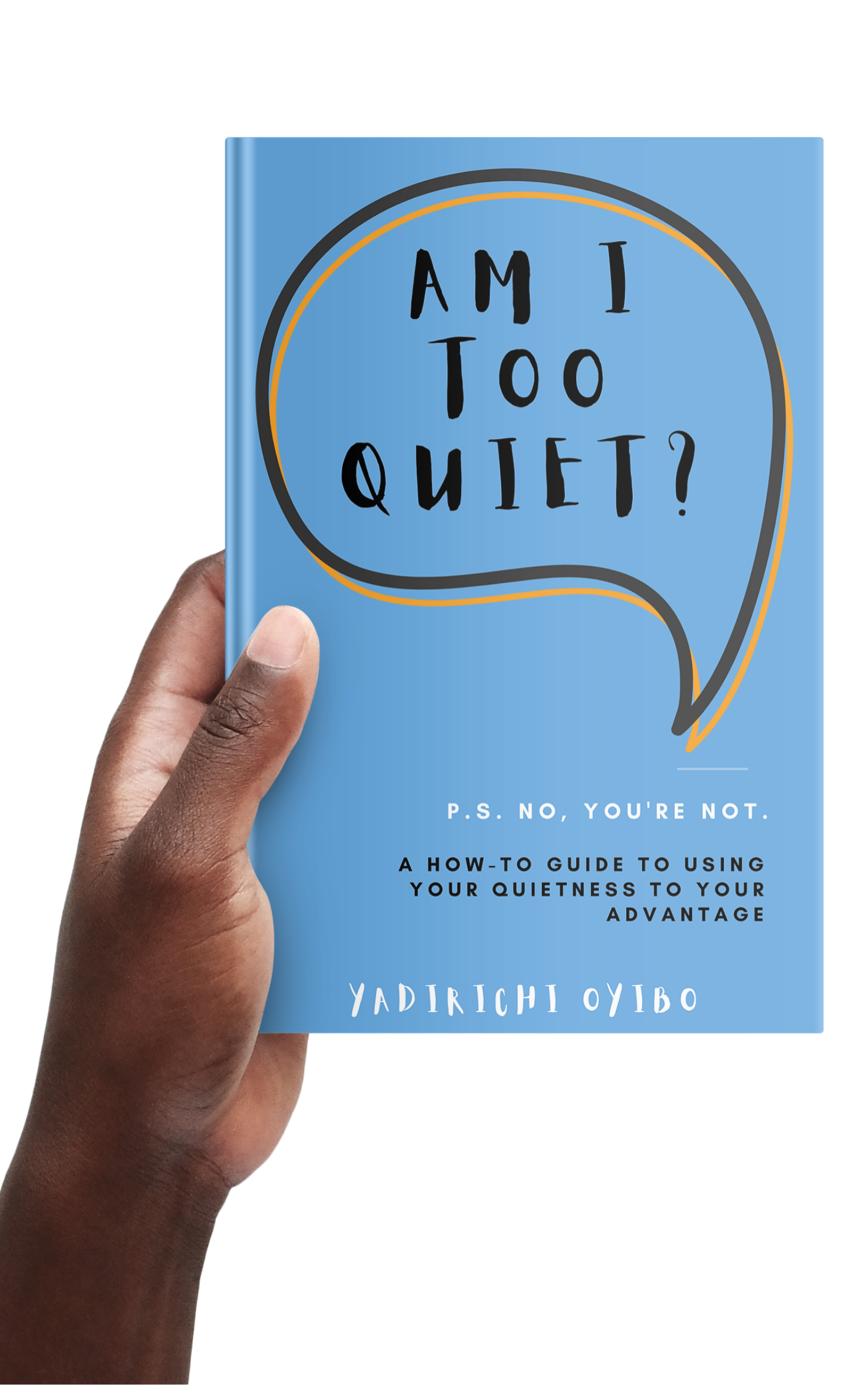You Might Be Using One of These 26 Defense Mechanisms Right Now
Photo by Toa Heftiba on Unsplash
In the fascinating realm of human psychology, defense mechanisms play a crucial role in safeguarding our emotional well-being.
These subconscious coping strategies act as psychological armor, shielding us from the overwhelming onslaught of negative emotions and experiences.
They are like protective mechanisms woven into the fabric of our personalities, influencing how we perceive and react to the world around us.
In this article, we explore 25 defense mechanisms types that shape personalities, their impact on mental health, and how you can journey towards self-awareness and personal growth, if you’re using any defense mechanism example.
What exactly is a defense mechanism in psychology?
In psychology, we can define defense mechanism as a natural, unconscious process that the human mind uses to protect itself from emotional distress or anxiety.
Think of it as a psychological shield, helping us cope with challenging situations and emotions. These mechanisms often kick in automatically, without us consciously being aware of them.
Defense mechanisms come in various forms, which we’ll dive into shortly. While defense mechanisms offer temporary relief, they can also impact our emotional well-being if not used in moderation.
It's essential to be self-aware and recognize when these coping strategies are helpful or hindering personal growth. By understanding defense mechanisms, we gain valuable insights into our emotional responses and can navigate life's challenges with greater awareness and resilience.
Why should we be aware of the examples of defense mechanisms?
The concept of defense mechanisms may seem enigmatic, but they are prevalent in our daily lives.
From the moment we encounter distressing situations to the way we handle relationships, these mechanisms subtly influence our behaviors, thoughts, and emotions.
Understanding their intricacies provides us with valuable insights into the human psyche. It’s also a gateway to understanding the complexities of human behavior.
Thus, we gain a deeper awareness of ourselves and others.
26 Common Types of Defense Mechanisms People Use
In this section, we delve into common defense mechanisms that individuals often rely on to navigate the complexities of life.
From denial to humor, every defense mechanism with example below influence how we perceive and handle emotions.
1. Repression: Burying Painful Memories
One of the most well-known defense mechanisms, repression, involves pushing distressing memories or thoughts deep into our subconscious to protect ourselves from emotional harm. While it shields us from immediate pain, unresolved emotions may resurface later in life.
2. Denial: Shielding from Unpleasant Realities
Denial acts as a protective barrier against unwelcome truths. It allows us to maintain a sense of stability and avoid confronting uncomfortable situations head-on. However, excessive denial can hinder personal growth and prevent us from addressing issues constructively.
3. Projection: Attributing Unwanted Feelings to Others
Projection involves projecting our suppressed feelings onto others, attributing our negative emotions to them instead of acknowledging and dealing with them ourselves. By doing so, we distance ourselves from confronting our inner struggles.
4. Rationalization: Justifying Actions or Thoughts
Rationalization enables us to justify our actions, even when they may be morally or ethically questionable. It serves as a defense against guilt or shame, offering an illusion of self-justification.
5. Displacement: Redirecting Emotions to Safer Targets
When we feel unable to express our emotions directly to their source, displacement comes into play. We channel our emotions toward less threatening targets, avoiding confrontations while still releasing pent-up feelings.
6. Sublimation: Channeling Negative Urges into Productive Outlets
Sublimation is the positive transformation of negative urges or impulses into constructive actions. By redirecting our energy, we create a healthier way to cope with inner conflicts and turn them into creative endeavors.
7. Regression: Reverting to Childlike Responses
Under stress, we may regress to childlike behaviors as a way to escape from the challenges of adulthood. This retreat into a familiar, less demanding state offers temporary relief from stressors.
8. Intellectualization: Detaching Emotions and Analyzing Situations
Intellectualization involves distancing ourselves emotionally from distressing situations and analyzing them from a detached, logical perspective. This mechanism allows us to gain clarity, but it can also lead to an emotional disconnect.
9. Reaction Formation: Expressing the Opposite of True Feelings
In reaction formation, individuals express feelings that are the opposite of their true emotions. It serves as a defense against unacceptable desires, presenting a socially acceptable facade to the world.
10. Suppression: Consciously Pushing Down Distressing Thoughts
Suppression is a conscious effort to push distressing thoughts or emotions out of our minds temporarily. While it may provide short-term relief, unresolved emotions can resurface if not addressed.
11. Fantasy: Creating Alternate Realities as an Escape
When reality becomes overwhelming, we may turn to fantasy as an escape mechanism. Creating alternate realities in our minds provides comfort and refuge from the challenges of the real world.
12. Undoing: Trying to Reverse Unacceptable Thoughts or Actions
Undoing is a defense mechanism where we attempt to negate or reverse unacceptable thoughts or actions through rituals or compensatory behaviors, seeking to alleviate feelings of guilt.
13. Isolation: Detaching Emotionally from Disturbing Experiences
Isolation involves detaching emotionally from disturbing experiences, enabling us to cope with trauma or negative events by compartmentalizing emotions.
14. Avoidance: Evading Confrontation with Unpleasant Circumstances
Avoidance is a familiar defense mechanism where we deliberately steer clear of situations or individuals that trigger distress or anxiety.
15. Minimization: Downplaying the Importance of Emotional Turmoil
Minimization allows us to downplay the significance of emotional turmoil, often dismissing the impact of negative experiences on our well-being.
16. Altruism: Helping Others to Mask One's Own Issues
Altruism, while generally positive, can also be a defense mechanism. By focusing on helping others, we may unconsciously use it as a distraction from addressing our own problems.
17. Identification: Adopting Traits of Others to Enhance Self-Image
Identification involves adopting characteristics or qualities of someone else to boost our self-esteem or to cope with feelings of inadequacy.
18. Compensation: Excelling in One Area to Offset Failures in Another
Compensation involves overachieving in one area of life to compensate for perceived shortcomings in another, maintaining a sense of balance and self-worth.
19. Dissociation: Detaching from Reality during Traumatic Events
Dissociation is a protective mechanism during traumatic experiences, causing a detachment from reality to reduce the impact of distress.
20. Splitting: Viewing People or Situations as All-Good or All-Bad
In splitting, individuals categorize people or situations as either all-good or all-bad, simplifying complexities to manage internal conflicts.
21. Humor: Using Comedy as a Defense Mechanism
Humor acts as a powerful defense mechanism to cope with difficult emotions or situations, providing a lighter perspective on challenging aspects of life.
22. Idealization: Exaggerating the Positive Attributes of Someone
Idealization involves magnifying the positive qualities of someone, often seen in the early stages of infatuation or admiration.
23. Somatization: Converting Emotional Distress into Physical Symptoms
Somatization transforms emotional distress into physical symptoms, as our bodies manifest the stress we struggle to express verbally.
24. Intellectual Avoidance: Focusing Excessively on Rational Thoughts
Intellectual avoidance occurs when individuals overly rely on logical thinking to escape confronting emotional aspects of their lives.
25. Selective Memory: Recalling Only Certain Aspects of an Event
Selective memory is a mechanism where we recall only specific aspects of an event, filtering out details that are uncomfortable or distressing.
26. Passive-Aggression: Indirectly Expressing Hostile Feelings
Passive-aggression involves indirectly expressing hostile feelings instead of confronting conflicts directly, often leading to communication breakdowns.
Can Defense Mechanisms Shape My Personality Type?
Yes! Our personalities are significantly shaped by the defense mechanisms we employ throughout our lives.
From early childhood experiences to adult challenges, the coping strategies we adopt leave an indelible mark on our character.
For instance, when a child experiences a traumatic event, repression might help them bury the painful memories to feel safe.
As we grow older, these coping mechanisms become ingrained in our personalities. They mold how we perceive the world, react to stressors, and interact with others.
So, if someone tends to use humor as a defense mechanism in their formative years, they might continue to rely on it in adulthood to navigate difficult emotions.
Your upbringing or environment might produce defense mechanisms.
We’re born with innate predispositions, unique temperaments, and personalities. Some of us might have a natural inclination towards certain coping strategies due to our genetic makeup.
For instance, individuals with more anxious temperaments might be more prone to using avoidance as a defense mechanism.
But wait, there’s more! Nurture, too, plays a significant role. Our early life experiences, family dynamics, and social interactions shape the development and utilization of defense mechanisms.
Children often learn defense mechanisms from observing their caregivers or older siblings. If a child grows up in an environment where denial is prevalent, they might adopt it as a way to cope with challenges later in life.
Do Different Personality Types Have Certain Defense Mechanisms?
People often gravitate towards specific defense mechanisms based on their personality types.
For example, individuals with a perfectionistic streak might lean towards rationalization as a way to justify their actions and alleviate guilt.
Introverts, like everyone else, employ defense mechanisms to protect themselves from emotional challenges.
Among the common defense mechanisms observed in introverts, one prominent example is isolation.
Introverts often withdraw to recharge their energy, seeking respite from overwhelming social situations. This isolation serves as a defense against emotional exhaustion, allowing them to regain equilibrium.
Additionally, introverts may engage in intellectualization, using rational thinking to distance themselves from emotional turbulence. By analyzing situations logically, they create a buffer between their feelings and external stressors.
But, it can be healthy! The healthy use of defense mechanisms in introverts involves using them as tools for self-awareness and personal growth. For instance, introspection can be a healthy way to process emotions and gain deeper understanding. Likewise, intellectualization can help introverts approach challenges with clarity and objectivity.
On the flip side, the unhealthy use of defense mechanisms can lead to maladaptive behaviors. Overreliance on isolation may lead to social isolation and hinder meaningful connections. Likewise, excessive intellectualization may result in emotional detachment and hinder authentic emotional expression.
It's crucial for introverts, and people with other personality types too, to strike a balance when using defense mechanisms to protect themselves. We should always remain open to growth and emotional connections.
So How Can I Identify Defense Mechanisms in Everyday Life?
In the tapestry of our daily interactions and emotions, defense mechanisms influence how we navigate through life’s challenges.
Here are some ways to identify them in everyday life, both in ourselves and others:
A. Self-Reflection:
Self-reflection is essential in uncovering our subconscious defense mechanisms. Taking moments to pause and examine our thoughts and actions allows us to gain insights into our emotional responses.
For instance, during a disagreement with a loved one, notice if you tend to deflect blame onto others (projection) or if you find yourself justifying your actions (rationalization). These observations bring our defense mechanisms into focus, helping us understand how we cope with stress and challenges.
B. Observe in Social Interactions:
Paying attention to the words, gestures, and behaviors of others provides glimpses into their subconscious coping strategies.
For example, a friend who consistently downplays the importance of emotional turmoil (minimization) may be using this defense mechanism to shield themselves from vulnerability.
C. Cultivating Empathy:
Empathy becomes a powerful lens through which we can comprehend others’ defense mechanisms with compassion. By putting ourselves in their shoes, we gain a deeper appreciation for the emotional battles they face.
When a coworker appears to be engaging in passive-aggressive behavior, empathizing with their underlying feelings may reveal a defense mechanism in action, providing a fresh perspective on their actions.
P.S: The beauty of identifying defense mechanisms in everyday life lies in its potential to foster deeper connections and self-awareness.
As we recognize these coping strategies in ourselves, we become more attuned to our emotional responses and can make conscious choices about how we handle challenges.
Similarly, understanding defense mechanisms in others nurtures empathy, enabling us to respond with compassion rather than judgment.
Liking this article? Join our Introvert Club→
Can My Defense Mechanism Affect My Mental Health?
Defense mechanisms play a pivotal role in shaping our mental health. Like a double-edged sword, these coping strategies can offer protection from emotional turmoil, but they can also impact our well-being if not managed effectively.
Below is the impact of defense mechanisms on mental health and how they influence our stress levels and emotional balance.
The Pros and Cons of Using Defense Mechanisms
Defense mechanisms serve as psychological shields, shielding us from overwhelming emotions and experiences. For instance, repression can protect us from being flooded with painful memories, allowing us to cope with daily challenges more effectively. In this way, defense mechanisms can act as valuable allies, offering temporary respite from distress.
However, relying solely on defense mechanisms can have drawbacks. When used excessively, they may hinder personal growth and emotional healing. For example, denial might prevent us from acknowledging and addressing pressing issues in our lives, hindering our ability to confront challenges constructively.
The Connection Between Defense Mechanisms and Stress
Stress and defense mechanisms are closely intertwined. On one hand, defense mechanisms can help alleviate stress by providing temporary relief from overwhelming emotions. For instance, humor may be a powerful coping mechanism, allowing us to find levity in difficult situations and easing our stress levels.
On the other hand, defense mechanisms can also exacerbate stress when they lead to emotional avoidance or disconnection. For example, intellectualization may distance us from our feelings, causing emotional bottlenecks that heighten stress levels in the long run.
Seeking Balance - The Defense Mechanism Psychiatry
Finding a healthy balance in employing defense mechanisms enables us to protect ourselves while staying emotionally aware and open to growth.
This balance allows us to protect ourselves without suppressing our emotions or avoiding important aspects of our lives.
A key aspect of seeking balance is cultivating self-awareness. By understanding our default defense mechanisms, we can assess if they are positively contributing to our well-being or hindering our growth.
When we encounter stress, taking a moment for self-reflection helps us discern if we are effectively coping or falling into maladaptive patterns.
Moreover, seeking support from loved ones and professionals is vital. Engaging in open conversations about our emotional struggles allows us to explore healthier ways to cope with stressors and challenges. Therapists or counselors can be valuable guides in this process, providing insights and tools to develop adaptive coping strategies.
Summary:
Your Personal Checklist if You’ve Been Using a Defense Mechanisms
A. Recognize the Need for Change and Emotional Growth
Acknowledging areas in which our defense mechanisms may hinder our well-being allows us to open doors to emotional growth.
For instance, if we notice that we tend to avoid difficult conversations (avoidance) due to fear of confrontation, recognizing this pattern empowers us to address the underlying emotions and adopt healthier communication strategies.
B. Cultivate a Supportive Environment for Positive Transformation
Surrounding ourselves with understanding individuals who encourage us to explore our emotions and defense mechanisms is vital. A safe space where we can share our vulnerabilities without judgment fosters growth and emotional resilience.
Engaging in open conversations with supportive friends, family members, or therapists can offer valuable perspectives and insights. Sharing our growth journey with others not only strengthens our emotional bonds but also provides us with encouragement and constructive feedback.
C. Embracing Vulnerability as a Pathway to Authenticity
Being vulnerable is essential for authentic connections and emotional growth. Embracing vulnerability allows us to break down barriers and establish meaningful relationships.
Embracing vulnerability is like opening a door to authenticity and emotional connection. Allowing ourselves to be vulnerable means accepting and expressing our true emotions without fear of judgment. This authenticity in turn deepens our relationships and fosters genuine connections.
By embracing vulnerability, we break down the walls that defense mechanisms build around our emotions. Instead of hiding behind coping strategies, we allow others to see our true selves, fostering understanding and empathy.
Through this journey of self-awareness and personal growth, we develop emotional resilience. We learn to recognize our defense mechanisms as valuable tools that protect us from distress, while also acknowledging when they hinder our growth. This balanced perspective enables us to make conscious choices about how we cope with life’s challenges and navigate emotional experiences with greater authenticity.
Conclusion
The world of defense mechanisms is complex, intriguing, and deeply rooted in human psychology. Understanding these coping strategies is essential for comprehending the intricacies of human behavior.
By understanding how these mechanisms shape our personalities, we can navigate life's challenges with greater self-awareness.
Kindly leave a comment if
Live Your Best Quiet Life
Get the Am I Too Quiet? book →













